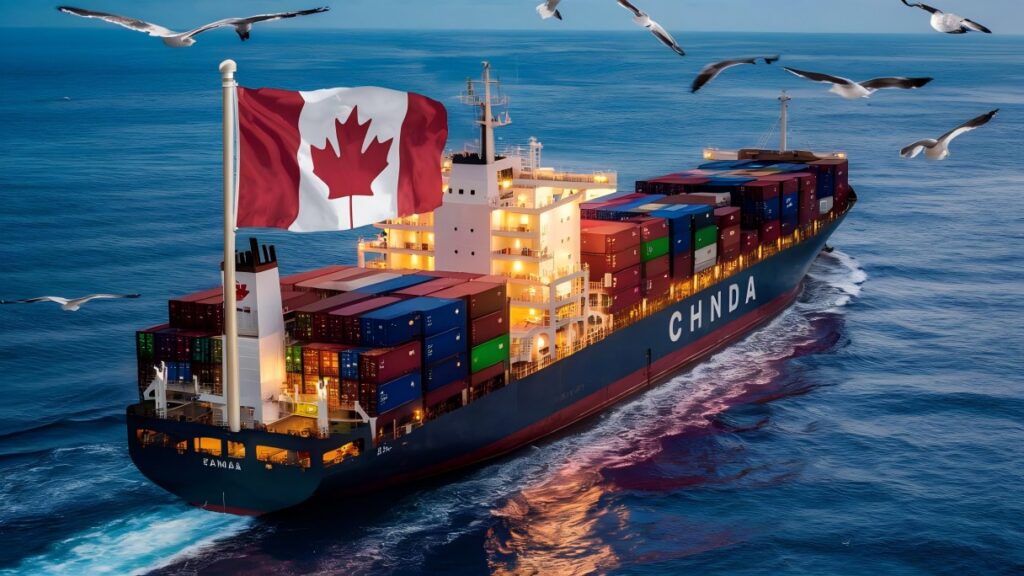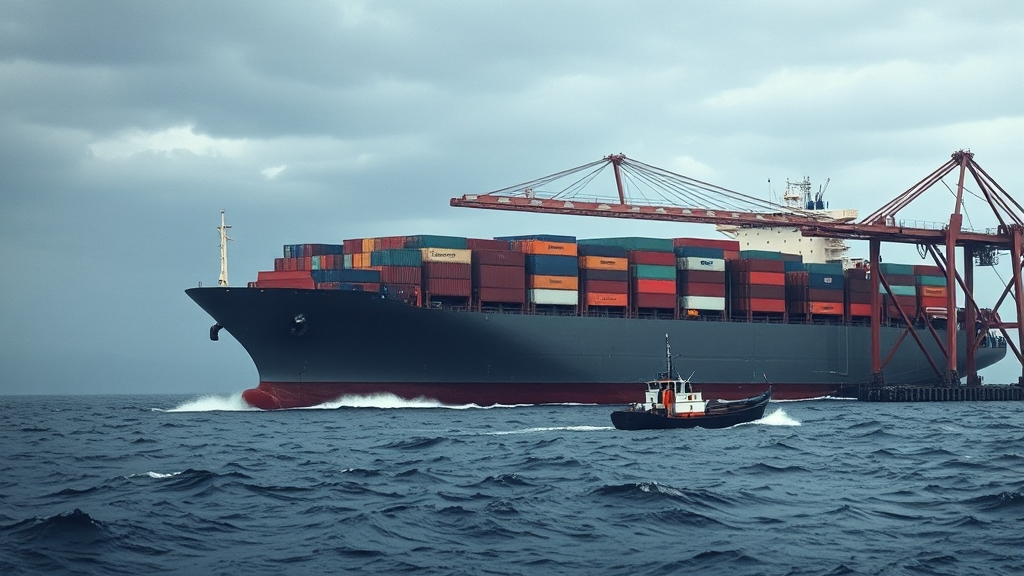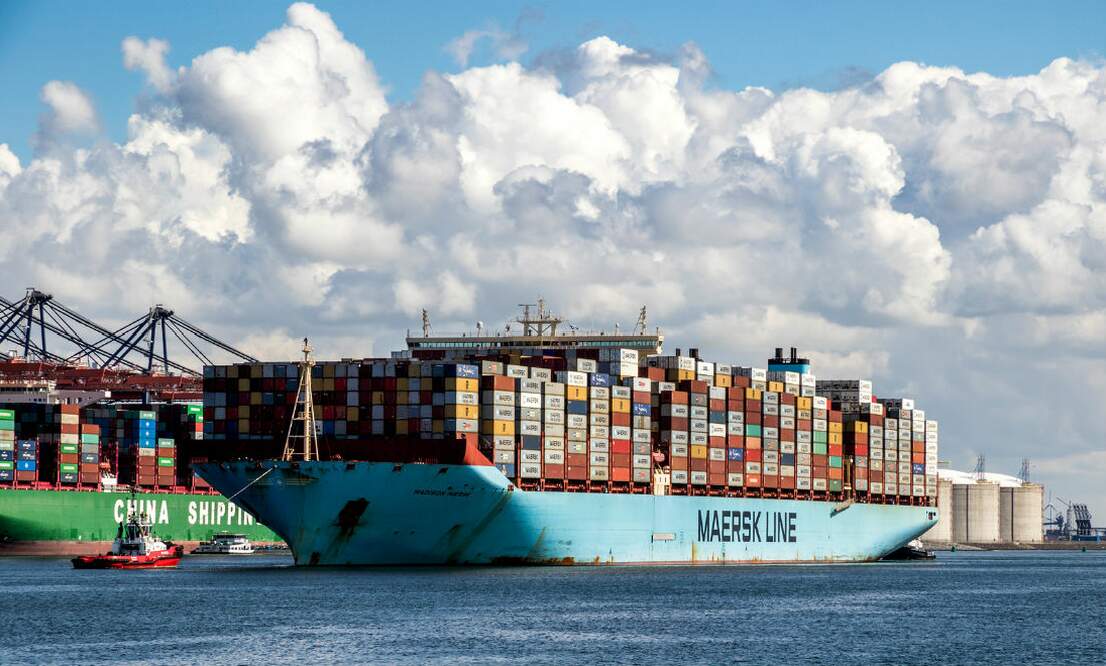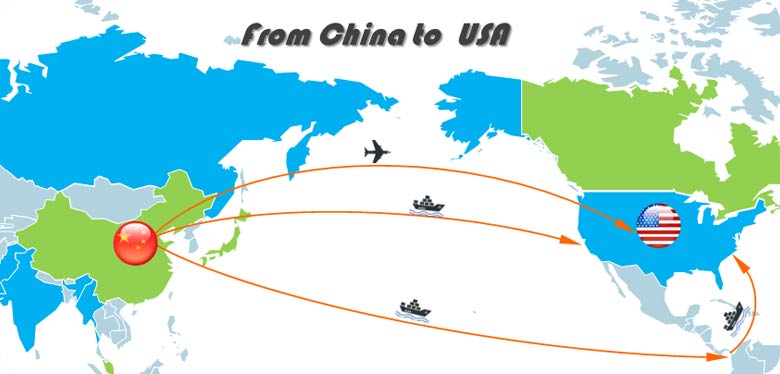Navigating the complexities of shipping goods from China to Canada can be a daunting task for businesses and individuals alike. With a myriad of shipping options available—including air freight, sea freight, and express delivery services—understanding the nuances of each method is crucial for making informed decisions that align with your budget and timeline. This comprehensive guide will walk you through the essential considerations for selecting a shipping company, highlight the advantages of various shipping methods, and provide insights into optimizing your logistics strategy. Whether you’re a seasoned importer or new to the global trade scene, this guide will equip you with the knowledge needed to streamline your shipping process and ensure your goods arrive safely and efficiently.

Overview of Shipping Options from China to Canada
Air Freight vs Sea Freight
When importing goods from China to Canada, the choice between air freight and sea freight is crucial. Each method has distinctive advantages and disadvantages that can significantly affect cost, speed, and reliability.
| Factor | Air Freight | Sea Freight |
|---|---|---|
| Speed | Typically 1-7 days | Typically 15-45 days |
| Cost | More expensive, ideal for small volumes | More cost-effective for large shipments |
| Weight Limit | Less suitable for heavy cargo (up to 300kg) | Ideal for heavy and bulky cargo |
| Handling | Requires careful packaging and handling | Less stringent packaging requirements |
| Environmental Impact | Higher emissions due to fuel consumption | Generally lower emissions per ton-mile |
- Air Freight is optimal for urgent shipments, where speed is paramount. It’s commonly used for electronics, pharmaceuticals, and high-value items.
- Sea Freight is preferable for large cargo volumes, such as machinery or bulk goods, where the shipping time is less critical.
Express Delivery Services
For businesses that require swift delivery of smaller packages, express delivery services are a viable option. Providers like DHL, FedEx, and UPS offer express shipping solutions, ensuring that packages can arrive in as little as 1-3 days. These services are particularly advantageous for samples, prototypes, or urgent documents, providing tracking features and guaranteed delivery timelines.
Door-to-Door Shipping
Door-to-door shipping services facilitate a seamless logistics experience by managing the entire shipping process from the origin in China to the destination in Canada. This service includes:
- Pickup from the supplier’s location, which eliminates the hassle of arranging transportation.
- Customs clearance, ensuring compliance with Canadian import regulations.
- Final delivery to the recipient’s doorstep.
Utilizing door-to-door shipping services can significantly simplify logistics, especially for businesses or individuals unfamiliar with international shipping protocols. Dantful International Logistics offers comprehensive Door-to-Door Shipping solutions, making it easier for global traders to manage their shipments effectively.
You may be interested in the following related articles:
- Shipping From China to Venezuela
- Shipping From China to Jamaica
- Shipping From China to Brazil
- Shipping From China TO Colombia
- Shipping From China TO Mexico
- Shipping From China to Panama
- Shipping From China to Costa Rica
- Shipping From China to the United States
- Shipping From China to Americas
Factors to Consider When Choosing a Shipping Company
Selecting the right shipping company is pivotal to a successful import operation. Here are the key factors to consider:
Shipping Costs and Rates
Understanding shipping costs is essential for maintaining budgetary control. Rates can vary significantly based on the shipping method chosen, the weight of the shipment, and any additional services required. It’s important to request detailed quotes from multiple providers to compare costs effectively.
Transit Times
Each shipping method has different transit times, and these can greatly influence inventory management and customer satisfaction. Air freight is faster, but sea freight costs significantly less for bulk shipments. Careful planning is required to align shipping methods with business needs.
Reliability and On-Time Delivery
The reliability of a shipping company is critical. Look for companies with a strong track record of on-time deliveries. Customer reviews, testimonials, and industry ratings can provide insights into a provider’s reliability. Dantful International Logistics prides itself on its robust network and successful delivery record, reinforcing its reputation as a trusted freight forwarder.
Insurance and Damage Protection
Shipping risks are inherent, and it is prudent to consider insurance and damage protection options. Many shipping companies offer insurance against loss or damage during transit. Evaluate the coverage details to ensure adequate protection, especially for high-value shipments.
Customer Service and Support
Strong customer support can make a significant difference in troubleshooting shipping issues. Assess the availability and responsiveness of customer service teams. Companies that provide real-time tracking and proactive communication can greatly enhance the shipping experience, particularly when addressing delays or issues that may arise during transit.
In conclusion, navigating the complexities of shipping from China to Canada requires careful consideration of various options and factors. By understanding the differences between air freight, sea freight, express services, and door-to-door shipping, and by evaluating shipping companies based on costs, reliability, and customer support, businesses can make informed decisions that optimize their shipping processes. For a professional and efficient logistics experience, consider partnering with Dantful International Logistics, a leading provider of comprehensive shipping solutions tailored to meet the needs of global traders.
Top International Freight Forwarders for China to Canada Shipping
DHL
DHL is a prominent player in the global logistics market, offering comprehensive shipping solutions that cater to both time-sensitive and standard deliveries. They provide various services, including express shipping, freight forwarding, and end-to-end logistics, ensuring that your shipments reach their destination swiftly and securely. With an extensive network and advanced tracking systems, DHL has established itself as a trusted partner for many businesses.
FedEx
FedEx is renowned for its expedited shipping services, making it an excellent choice for urgent deliveries. They offer a variety of shipping options, including air freight and ground transportation, with the added benefit of robust tracking capabilities. FedEx’s expertise in customs clearance helps mitigate delays at the border, ensuring that shipments from China to Canada are handled efficiently.
UPS
UPS is another leading freight forwarder that specializes in providing tailored shipping solutions for businesses of all sizes. With a strong presence in both China and Canada, UPS offers a range of services, including supply chain management and customs brokerage. Their commitment to on-time delivery and customer service makes them a reliable choice for transit between these two countries.
Aramex
Aramex is a global logistics and transportation provider known for its innovative solutions. They specialize in e-commerce logistics, making them particularly suited for businesses looking to ship smaller packages from China to Canada. Aramex offers door-to-door delivery options, ensuring a smooth shipping experience for customers with diverse needs.
DB Schenker
DB Schenker is a well-established freight forwarder with a focus on sustainability and efficiency. They provide a wide range of services, including freight management, contract logistics, and supply chain solutions. Their expertise in customs clearance and compliance with international shipping regulations makes them a valuable partner for businesses navigating the complexities of importing goods from China.
Advantages of Using an International Freight Forwarder
Utilizing the services of an international freight forwarder can streamline the shipping process and offer numerous benefits to businesses importing goods from China to Canada. Here are some of the key advantages:
Expertise in International Shipping Regulations
Freight forwarders possess in-depth knowledge of international shipping regulations, which can be complex and ever-changing. They stay updated on customs requirements, import/export laws, and trade agreements, ensuring that your shipments are compliant and minimizing the risk of delays or penalties.
Customs Clearance Assistance
Navigating customs can be one of the most challenging aspects of international shipping. Freight forwarders provide customs clearance assistance, preparing necessary documentation and liaising with customs authorities on your behalf. This support facilitates a smoother clearance process, reducing the likelihood of shipment holds at the border.
Tracking and Status Updates
Freight forwarders typically offer advanced tracking systems that allow businesses to monitor their shipments in real-time. This transparency provides peace of mind and enables proactive management of logistics. Regular status updates keep businesses informed about their shipments’ progress, helping them plan accordingly.
Single Point of Contact
Working with a freight forwarder means having a dedicated point of contact for all shipping-related questions and concerns. This streamlined communication eliminates confusion and fosters a more efficient logistics process. Whether you need to address shipment delays or inquire about documentation, having a single representative simplifies the experience.
By leveraging the expertise and resources of a reputable freight forwarder, businesses can navigate the complexities of international shipping with greater ease. These advantages not only enhance operational efficiency but also contribute to improved customer satisfaction and overall business success. For a comprehensive logistics solution, consider Dantful International Logistics, which provides tailored services to meet the unique needs of global traders.
Local Chinese Shipping Companies for Canada
Lower Costs than International Providers
One of the primary advantages of using local Chinese shipping companies is their ability to offer competitive pricing compared to larger international freight forwarders. Local providers often have lower overhead costs and can leverage regional shipping networks to provide cost-effective solutions. Businesses importing goods in bulk may find that local carriers can significantly reduce shipping expenses, resulting in better profit margins.
Chinese Language Support
For companies that may not be fluent in English or unfamiliar with international shipping protocols, local Chinese shipping companies provide a significant advantage through Chinese language support. Communication in Mandarin allows for clearer understanding and better coordination when discussing shipping requirements, documentation, and customs procedures. This support can be invaluable in ensuring that all aspects of the shipping process are handled efficiently and accurately.
Knowledge of Local Shipping Conditions
Local shipping companies possess in-depth knowledge of local shipping conditions, including regional regulations, practices, and potential challenges. This expertise enables them to navigate the complexities of shipping within China effectively. Additionally, they can provide insights into local customs requirements, port operations, and logistical considerations that may affect the shipping timeline and costs. Leveraging this local knowledge can enhance the overall efficiency of the shipping process.
Incoterms for China to Canada Shipping
EXW (Ex Works)
Under the EXW (Ex Works) Incoterm, the seller is responsible for making the goods available at their premises (or another named place) for pickup by the buyer. The buyer assumes all risks and costs associated with transporting the goods from the seller’s location to their destination, including export duties and customs clearance. This term places the minimum obligation on the seller and maximum responsibility on the buyer.
FCA (Free Carrier)
The FCA (Free Carrier) Incoterm allows flexibility in specifying the seller’s responsibilities. The seller delivers the goods, cleared for export, to a carrier or another named party at a specified location. The risk transfers to the buyer once the goods are handed over to the carrier. This term is advantageous for businesses that want to control the logistics and choose their preferred carrier.
CPT (Carriage Paid To)
With CPT (Carriage Paid To), the seller is responsible for paying the transportation costs required to bring the goods to a specified destination. However, the risk transfers to the buyer once the goods are handed over to the carrier. This term is commonly used when the seller wants to ensure that transportation costs are covered up to a certain point while transferring the risk early in the shipping process.
CIP (Carriage and Insurance Paid To)
CIP (Carriage and Insurance Paid To) is similar to CPT but includes an additional layer of protection. Under this term, the seller not only pays for transportation costs but also procures marine insurance for the buyer’s benefit while the goods are in transit. This term offers greater security for the buyer, as it mitigates risks associated with loss or damage during transportation.
Understanding these Incoterms is vital for facilitating effective international trade between China and Canada. By clearly defining responsibilities and risk transfer, businesses can minimize misunderstandings and enhance their logistics operations. For businesses seeking reliable shipping solutions, Dantful International Logistics offers tailored services that cater to the specific needs of global traders, ensuring smooth import operations from China to Canada.
Tips for Negotiating the Best Shipping Rates
Get Quotes from Multiple Providers
One of the most effective strategies for negotiating shipping rates is to obtain quotes from multiple providers. This allows businesses to compare pricing and services offered by different freight forwarders. By evaluating various quotes, importers can identify the most cost-effective options and have leverage during negotiations. It’s beneficial to request detailed breakdowns of costs, including fuel surcharges, handling fees, and any additional charges that may apply.
Provide Accurate Dimensions and Weights
When requesting quotes, providing accurate dimensions and weights of the cargo is crucial. Freight rates are often calculated based on the size and weight of the shipment. Inaccurate or inflated estimates can lead to higher costs or unexpected charges once the cargo is weighed and measured. By ensuring that the details provided are precise, importers can avoid discrepancies and secure more favorable rates.
Consider Shipping in Off-Peak Seasons
Shipping costs can fluctuate significantly based on demand and logistics capacity. Shipping during off-peak seasons can often result in lower rates. Importers should analyze seasonal trends and aim to schedule shipments during periods when fewer businesses are shipping goods, allowing them to take advantage of reduced competition for freight capacity.
Consolidate Shipments When Possible
Consolidating shipments can lead to substantial savings on freight costs. By combining orders from multiple suppliers or shipping less-than-container-load (LCL) freight as a full container load (FCL), businesses can optimize space and reduce per-unit transportation expenses. Freight forwarders often offer consolidation services, enabling importers to maximize their shipping efficiency and minimize costs.
Importance of Tracking and Insurance
Real-Time Shipment Tracking
Real-time shipment tracking allows businesses to monitor the status and location of their cargo throughout the shipping process. Most modern freight forwarders provide tracking tools that offer visibility into shipment progress, estimated delivery times, and any potential delays. This capability is essential for effective inventory management and customer communication. By keeping stakeholders informed, businesses can enhance customer satisfaction and respond proactively to any issues that may arise during transit.
Cargo Insurance Options
Investing in cargo insurance is a prudent step for businesses shipping valuable goods. While many freight forwarders offer basic coverage, additional insurance options may provide greater protection against loss or damage during transit. Understanding the different types of insurance available, such as all-risk coverage or specific perils, allows businesses to choose the policy that best meets their needs. Assessing the value of the goods and potential risks involved in the shipping route can inform the decision regarding insurance coverage levels.
Damage Claims Process
Understanding the damage claims process is crucial should any issues arise during shipping. Each freight forwarder has specific procedures for filing claims, which typically involve documenting the damage and providing necessary evidence, such as photographs and shipping documents. Familiarizing oneself with the claims process and having contingency plans in place can expedite resolution and minimize losses. Ensuring that proper documentation is maintained throughout the shipping journey is essential for a smooth claims experience.
Employing these strategies and understanding the importance of tracking and insurance can significantly improve the shipping experience for businesses importing goods from China to Canada. As logistics continues to evolve, leveraging the expertise of freight forwarders like Dantful International Logistics can provide tailored solutions that meet the unique needs of importers, ensuring efficient and secure shipping operations.
Dantful International Logistics Services:
- Dantful Ocean Freight Services
- Air Freight From China
- Amazon FBA Freight Forwarding
- WAREHOUSE Services
- One-Stop Customs Clearance Solution
- Cargo Insurance Services in China
- DDP Shipping Services By Dantful Logistics
- Out of Gauge Cargo Transportation Shipping Services
Frequently Asked Questions (FAQs)
1. What are the main shipping options available for goods from China to Canada?
The primary shipping options for importing goods from China to Canada include air freight, sea freight, express delivery services, and door-to-door shipping. Each option has its advantages and disadvantages, such as speed, cost, and handling requirements.
2. How do air freight and sea freight differ?
- Air Freight: Typically takes 1-7 days, more expensive, ideal for small volumes and urgent shipments.
- Sea Freight: Takes 15-45 days, more cost-effective for large shipments, suitable for heavy and bulky cargo.
3. What is door-to-door shipping?
Door-to-door shipping involves a logistics service that manages the entire shipping process from the pickup at the supplier’s location in China to the delivery at the recipient’s address in Canada, including customs clearance and transportation.
4. What should I consider when selecting a shipping company?
Key factors to consider include shipping costs, transit times, reliability and on-time delivery, insurance and damage protection, and customer service and support.
5. Why should I use a freight forwarder?
Freight forwarders provide expertise in international shipping regulations, assistance with customs clearance, real-time tracking, and a single point of contact for all shipping-related concerns, simplifying the logistics process.
6. Are local Chinese shipping companies a good option?
Yes, local Chinese shipping companies may offer lower costs compared to international providers, provide Chinese language support, and possess in-depth knowledge of local shipping conditions.
7. What are Incoterms, and why are they important?
Incoterms define the responsibilities of buyers and sellers in international trade. Familiarity with these terms, such as EXW, FCA, CPT, and CIP, is essential for minimizing misunderstandings and enhancing logistics operations.
8. How can I negotiate better shipping rates?
To secure better shipping rates, obtain quotes from multiple providers, provide accurate shipment dimensions, consider shipping in off-peak seasons, and consolidate shipments when possible.
9. Why is tracking and insurance important in shipping?
Real-time tracking allows businesses to monitor shipment status, while cargo insurance protects against loss or damage during transit. Understanding the claims process is also critical for mitigating losses.

Young Chiu is a seasoned logistics expert with over 15 years of experience in international freight forwarding and supply chain management. As CEO of Dantful International Logistics, Young is dedicated to providing valuable insights and practical advice to businesses navigating the complexities of global shipping.





















 Afrikaans
Afrikaans Shqip
Shqip አማርኛ
አማርኛ العربية
العربية Հայերեն
Հայերեն Azərbaycan dili
Azərbaycan dili Euskara
Euskara Беларуская мова
Беларуская мова বাংলা
বাংলা Bosanski
Bosanski Български
Български Català
Català Cebuano
Cebuano Chichewa
Chichewa 简体中文
简体中文 繁體中文
繁體中文 Corsu
Corsu Hrvatski
Hrvatski Čeština
Čeština Dansk
Dansk Nederlands
Nederlands English
English Esperanto
Esperanto Eesti
Eesti Filipino
Filipino Suomi
Suomi Français
Français Galego
Galego ქართული
ქართული Deutsch
Deutsch Ελληνικά
Ελληνικά Kreyol ayisyen
Kreyol ayisyen Harshen Hausa
Harshen Hausa Ōlelo Hawaiʻi
Ōlelo Hawaiʻi עִבְרִית
עִבְרִית हिन्दी
हिन्दी Hmong
Hmong Magyar
Magyar Íslenska
Íslenska Igbo
Igbo Bahasa Indonesia
Bahasa Indonesia Gaeilge
Gaeilge Italiano
Italiano 日本語
日本語 Basa Jawa
Basa Jawa ಕನ್ನಡ
ಕನ್ನಡ Қазақ тілі
Қазақ тілі ភាសាខ្មែរ
ភាសាខ្មែរ 한국어
한국어 كوردی
كوردی Кыргызча
Кыргызча ພາສາລາວ
ພາສາລາວ Latin
Latin Latviešu valoda
Latviešu valoda Lietuvių kalba
Lietuvių kalba Lëtzebuergesch
Lëtzebuergesch Македонски јазик
Македонски јазик Malagasy
Malagasy Bahasa Melayu
Bahasa Melayu മലയാളം
മലയാളം Maltese
Maltese Te Reo Māori
Te Reo Māori मराठी
मराठी Монгол
Монгол ဗမာစာ
ဗမာစာ नेपाली
नेपाली Norsk bokmål
Norsk bokmål پښتو
پښتو فارسی
فارسی Polski
Polski Português
Português ਪੰਜਾਬੀ
ਪੰਜਾਬੀ Română
Română Русский
Русский Samoan
Samoan Gàidhlig
Gàidhlig Српски језик
Српски језик Sesotho
Sesotho Shona
Shona سنڌي
سنڌي සිංහල
සිංහල Slovenčina
Slovenčina Slovenščina
Slovenščina Afsoomaali
Afsoomaali Español
Español Basa Sunda
Basa Sunda Kiswahili
Kiswahili Svenska
Svenska Тоҷикӣ
Тоҷикӣ தமிழ்
தமிழ் తెలుగు
తెలుగు ไทย
ไทย Türkçe
Türkçe Українська
Українська اردو
اردو O‘zbekcha
O‘zbekcha Tiếng Việt
Tiếng Việt Cymraeg
Cymraeg יידיש
יידיש Yorùbá
Yorùbá Zulu
Zulu